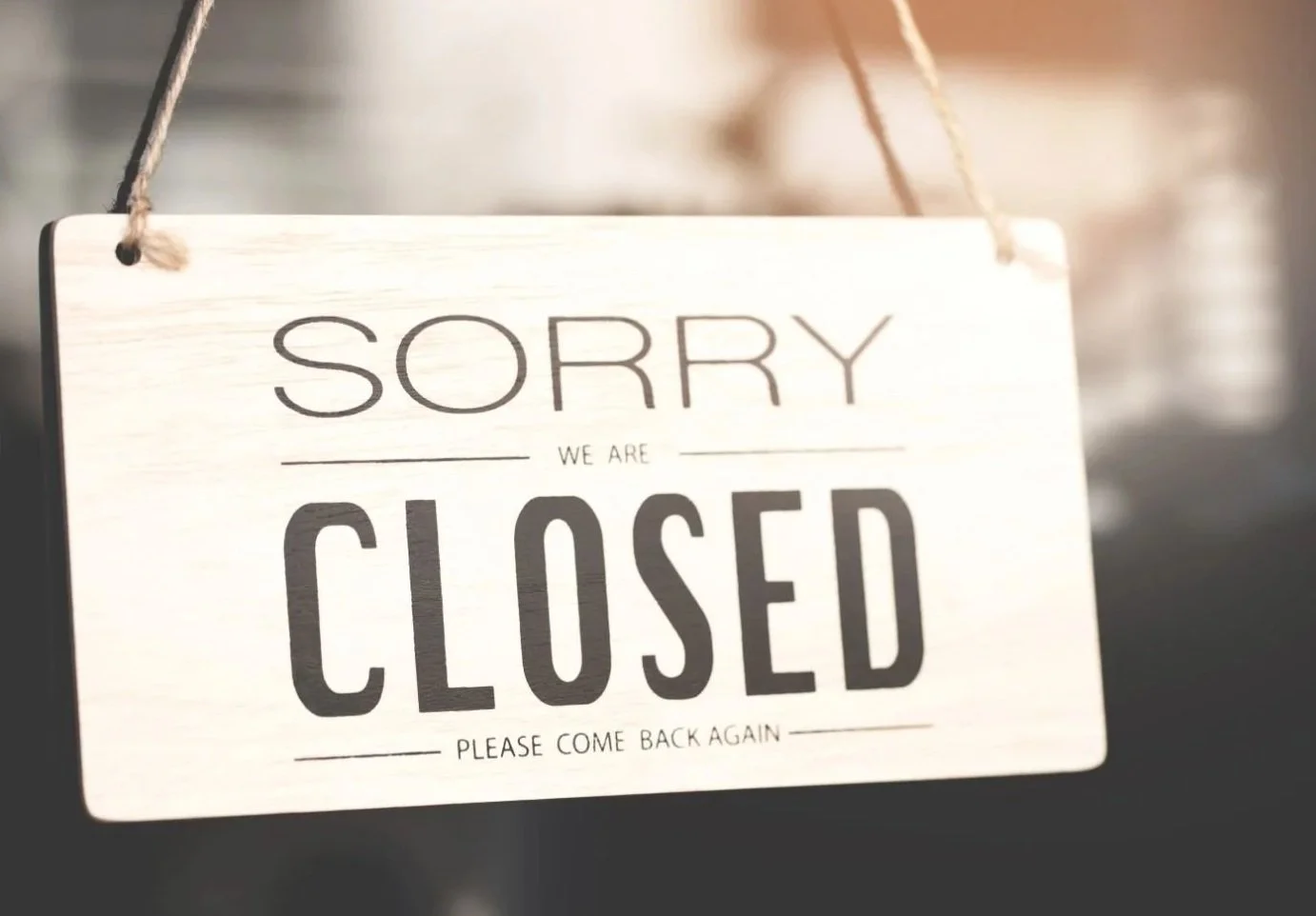
I hope you find my mental health blogs & recordings helpful on your journey!
Grounding Exercise
Here is an audio recording taking you through a grounding/dropping anchor exercise. Find a quiet place you can do this 9 minute experiential practice of just noticing. Think of this as an experiment. There is no right way or wrong way to do this. It’s all about noticing the present moment.
Meghan C. Foucher, LICSW, Individual and Couples Counseling Worcester MA
Loving-Kindness Meditation Audio

How Family-of-Origin Patterns Show Up in Your Relationship And What to Do About It
We All Come From a Family Culture
One of the things that unites all of us as humans is that we all come from families. We grow up inside these small worlds, and every family has its own way of being, its own culture, rituals, and unspoken rules.
In my 20+ years working with individuals and couples, I’ve seen how deeply these early family cultures shape the way we love and the way we struggle in relationships. Patterns that felt familiar and at times comfortable at age eight can quietly follow us into our thirties, forties, and beyond.
In some families, people sit down to dinner every night and everyone has a designated seat. You just know, that’s Dad’s chair. If a friend comes over, you suddenly have to explain the culture: “Oh no, that’s where my dad sits. You can sit here instead.” These are simple examples, but they show how patterned family life can be.
There were also rules that were anything but quiet. In my family, us kids weren’t allowed to snack in the living room and watch t.v., but of course we did, at least until we saw our mom’s car pull into the driveway. Then it was a mad dash back to the kitchen. We knew the rule, and we definitely knew we didn’t want to get in trouble.
Beyond behaviors like where we eat, every family develops roles. Unless a family is particularly reflective, most people don’t stop to think, What role did I play growing up?
As I often tell clients, we all learn how to be in relationship from our first teachers, our families.

Parenting, Emotional Labor, and Why Couples Feel So Disconnected And What to Do About It
Parenting is a beautiful, meaningful experience. It’s an honor to raise human beings, to shape and support them, and to witness their lives unfold. Parenting is also not for the faint of heart. The responsibility is immense, and the demands can be unending at times.
Many people enter parenthood with a vision of how they want to parent and how they want their family to feel. Sometimes that vision is modeled after the family you grew up in, and other times it’s shaped in direct opposition to it. I’m definitely not going to do it the way my parents did. But what we imagine parenting will look like often shifts once we’re actually living it, especially depending on the needs, temperament, or neurodiversity of the child in front of us.
Often, partners don’t deeply explore their parenting philosophies before having children. There’s a general sense of “We both want kids,” but not always a shared understanding of how those kids will be raised, how stress will be handled, or how responsibilities will be divided. Let’s face it, even if you did have these conversations, you can’t really know what it will be like for the both of you until you are knee deep in the beautiful chaos of parenthood

Why Stress Steals Connection in Relationships
Stress Isn’t Just in Your Head
Stress doesn’t just live at work, it follows us home. Couples Therapy Massachusetts supports partners in understanding how overwhelm shapes reactions and connection.
Stress is the body’s response to perceived danger.
The tricky part is that our brains and bodies don’t reliably know the difference between physical danger , like a lion or tiger chasing us and modern life danger, like overwhelming workloads, tight deadlines, parenting demands, relationship expectations, financial pressure, or the constant juggle of daily responsibilities.
This experience is one of the many reasons relationships can feel so hard, even when there is love and good intention — something I explore more deeply in Why Relationships Are So Hard (Even in Good Relationships).
To your nervous system, overload is overload.
When the body senses threat, it releases stress hormones designed to help us survive. These responses evolved to keep us alive in truly life-or-death situations. The problem is that our nervous systems haven’t caught up with modern life. They don’t distinguish between something that might actually end our lives and something that feels urgent, demanding, or overwhelming but isn’t physically dangerous.
So even though a packed schedule, mounting expectations, or emotional strain won’t literally kill us, the body reacts as if it might.

Why Relationships Are So Hard (even in Good Relationships)
Being human isn’t easy.
I mean, you’ve lived how many years now? Even the act of being born, of coming into this world, is not for the faint of heart. From the very beginning, being human asks something of us.
Part of being human is being in relationship: with yourself, with other people, and with the environment around you. That includes relationships with family, partners, children, friends, coworkers, animals, and even the places you move through each day. And relationships, in all of these forms, are complicated.
The only person you truly have control over is yourself and even that can feel questionable at times. Because if we’re honest, having a grounded, compassionate relationship with yourself isn’t always easy either. There are moments when your own thoughts, reactions, and emotions feel confusing or overwhelming, despite your best efforts.
So I’m not here to be a downer, but I am here to say that of course relationships are hard.
Even when there is love. Even when there is care. Even when both people genuinely want the best for each other.
Every relationship brings together two whole humans, each carrying their own lived experiences, histories, values, passions, wounds, accomplishments, and hopes. You bring your stuff. And the people you love bring theirs, too.
Sometimes those pieces fit together beautifully, like a puzzle snapping into place. And other times it can feel like you’re trying to force together pieces from entirely different puzzles, mismatched, frustrating, and impossible to make sense of.
And yet… relationships also hold incredible beauty.
They offer connection, meaning, growth, and the possibility of being deeply known. They challenge us, stretch us, and sometimes break us open in ways that matter.
This is where we begin.
In my work at Couples Therapy Massachusetts, I see how often loving, well‑intentioned partners struggle not because they are doing something wrong, but because relationships are happening inside real, demanding lives.

When You Feel Unheard in Your Relationship | Couples Therapy Massachusetts
I frequently meet with couples who say that they are struggling with communication. They are talking, but one or both feel like whatever they are saying isn’t landing with the other. You end up not feeling heard, and when you don’t feel heard, it can feel like you are not being fully seen.
Truly listening to your partner is a gift you are giving yourself, your partner, and your relationship. At Couples Therapy Massachusetts, I support couples learn and practice this important skill.
There is a particular kind of loneliness that shows up in relationships when you’ve already explained yourself and somehow feel even more alone afterward. You talked. You tried. You used the words. And still, something didn’t land.
Many couples recognize this moment instantly: “We talked… so why do I feel worse?” It can feel confusing, discouraging, and quietly painful, especially in loving, committed relationships. It is often the case that people then decide not to share at all, because talking and not being understood or listened to feels worse than staying silent.
At Couples Therapy Massachusetts, this is one of the most common experiences couples bring into the room. Feeling unheard doesn’t necessarily mean communication is broken. More often, it means something emotional hasn’t been met yet.
The Loneliness of Talking Into the Void in Relationships
In my work with couples, I often support them in having a conversation in a new way. I ask partners to take turns talking about a topic they both feel okay talking about. One person speaks while the other listens. I pause the speaker and ask the listening partner to reflect back what they heard.
Sometimes the reflection is right on point. Other times, it’s surprisingly off. Important language or nuance gets missed. The listening partner genuinely believes they’ve captured the “message,” while the speaker feels more alone and invisible than before.
This isn’t intentional, usually. No one is usually trying to miss their partner. But when the emotional meaning underneath the words doesn’t land, the experience of being unseen can deepen.
What Feeling Unheard Really Means in a Relationship
Feeling unheard isn’t about volume, logic, or clarity. It isn’t about who explains better or who has the stronger argument.
It’s about emotional recognition.
There’s an important distinction here:
Being heard means your words are acknowledged.
Feeling heard means your emotional experience is recognized by the other person.

Why Repair Matters More Than the Fight | Couples Therapy Massachusetts
Why Repair Matters More Than the Fight
How we are in relationship to one another, whether in friendship, family, or romance, is learned. We learn through the families, communities, and cultures we are a part of. That means we’re not doomed to keep repeating the same painful patterns that cause tension or disconnection for you, your partner, or your family.

Why We Argue About the Small Things (and What It Really Means)
The Mystery of the “Small Things”
Anyone who’s been in a relationship has argued about the tiny things; the everyday moments that somehow turn into big reactions. You might call them pet peeves: the way the dishwasher is loaded, how the laundry is folded, or who forgot to take out the trash. When people live together, whether dating, married, or even roommates, everyone has a different way of doing things.
I’ve worked with couples who have gone multiple rounds over these everyday tasks, both feeling completely justified in their approach and deeply frustrated that their partner doesn’t see it their way.
When I meet with couples in therapy, I’m often less interested in what they’re arguing about and more curious about how they argue. Is one person more vocal while the other goes silent? Do both partners dig in and defend their stance? Does the tone escalate to swearing or name-calling?
The truth is, the issue usually isn’t about the dishwasher or the laundry (though I’ll admit, I think I fold laundry the “right way” too and don’t get me started on the dishwasher). It’s about what those moments represent. Underneath the argument, there may be feelings of being unheard, disrespected, dismissed, powerless, or out of control.

Why We Shut Down During Conflict | Couples Therapy Massachusetts
The Moment Everything Goes Quiet
You and your partner are having an argument. Voices rise as each of you tries to make your point about who’s more responsible for the issue at hand. Then suddenly, one of you goes silent. It’s like they’re physically there, but emotionally and mentally somewhere else.
This moment of going quiet, of pulling away, isn’t random. It’s a sign that something deeper is happening. Shutting down is often an automatic, protective response to emotional overload.
In my work with couples, I help partners not only understand their cycles of conflict and connection, but also recognize the ways they each protect or cope when things feel tense. Knowing your own survival strategies, as well as your partner’s, is one of the first steps toward shifting the dynamic between you.
Many of the couples I see in Couples Therapy Massachusetts notice that one or both partners tend to shut down when tension rises.

Communication Is a Skill, Not a Trait: Couples Therapy Massachusetts Can Help
Communication Is a Skill, Not a Trait: Couples Therapy Massachusetts Can Help
Communication Is at the Heart of Connection
Smiles like this don’t come from perfection. They come from practice. Couples Therapy Massachusetts helps partners rebuild connection through communication.
The fact that you are reading this shows your desire, or at least your curiosity to make a positive change in the way you and your partner engage with each other. Relationships are at the heart of being human. They can nourish us, protect us physically and emotionally, and provide financial and practical support. At their best, relationships are a safe haven: a place to rest from the world, where we feel accepted and understood for who we are.
But relationships can also be deeply challenging. When misunderstandings pile up, a relationship can feel more like a stressor than a refuge. Two people coming together means two histories, two family systems, and two sets of personal trials and triumphs colliding. It’s no surprise that couples find themselves stuck in painful communication patterns.
Every couple struggles with communication at different points in their relationship, especially during times of high emotion.

Couples Therapy Massachusetts: The Power of Play
When’s the last time you played? I mean really played, being silly, not worrying about what others think, being fully in the moment, and having fun simply for the sake of joy.
Play isn’t just for kids. it’s essential in adult life, and especially in relationships. At Couples Therapy Massachusetts, I often remind partners that play is one of the simplest ways to strengthen connection and reduce stress.
Why Play Matters
Reduces stress: Play lightens the load we carry and brings relief from daily pressures.
Builds connection: It offers new ways of seeing yourself and your partner.
Keeps you present: Play shifts your focus away from regrets of the past or worries about the future.
Invites vulnerability: When you play, you tap into the childlike part of yourself, unencumbered, authentic, and open.
Have you ever seen a child singing and dancing in the middle of a store, carefree and unconcerned with who’s watching? Kids naturally build trust and relationships through play. Adults do too.

Couples Therapy Massachusetts: Changing Your Relationship Dance
Understanding the Dance of Conflict
At the heart of Couples Therapy Massachusetts is rediscovering the joy in your connection.
I was meeting with a couple recently where we were exploring their “dance” , their cycle of conflict and disconnection. They thoughtfully described their pattern with a lot of vulnerability in the room. At one point, we were processing what one of the partners was “protecting.” She was deeply in her survival strategy, something she’s just beginning to recognize. As she tapped into the more vulnerable parts of herself that drive her, she became emotional, realizing how these pieces were fueling her role in the couple’s conflict.
Why We Keep Coming Back for Connection
During a quiet moment in session, I gently, and somewhat jokingly wondered aloud how incredible it is that humans aren’t always in rupture and conflict. In a world that often feels like it’s on fire, it’s remarkable how many times humans show resilience, connection, and even joy. Despite everything, we keep coming back for more. We survive because of connection.

Couples Therapy Massachusetts: Check Your Assumptions
In my work at Couples Therapy Massachusetts, one theme that shows up again and again is the assumptions we make about our partners.
At Couples Therapy Massachusetts, we support couples in shifting our assumptions and perspectives to build stronger connection.
Here’s something to consider: if you know in your heart that your partner wouldn’t intentionally try to hurt you, does it help to hold onto that belief when you’re upset? If your feelings do get hurt, what might happen if you got curious instead and asked, “Hey, what just happened there?” instead of jumping straight to conclusions?
The truth is, none of us are mind readers. We all see the world through our own lens, our history, our experiences, our “stuff.” Sometimes I forget this myself and am genuinely surprised when someone interprets the same moment completely differently than I do.

Couples Therapy Massachusetts: Unpacking our Baggage
I often get asked what the most common theme is in my work with couples. The truth is, the underlying theme in Couples Therapy Massachusetts is that everyone is carrying their own “stuff”: their burdens, histories, pain, and interpretations of those experiences. These invisible stories shape the pain points we hold and how we show up in relationships.
Think about it: everyone you pass walking on the street or driving in their car is carrying a lifetime of experiences with them.
How Our Histories Shape Our Reactions
Depending on your life experiences, how much therapy or inner work you’ve done (or haven’t done), the meaning you assign, often without realizing it to your past, your current stress level, even how much sleep or food you’ve had, all of this impacts how you respond to another person’s behavior, mood, facial expression, or body language.

Couples Therapy Massachusetts: Finding What Is Working
Man, it is so easy to zero in on what’s not working, whether that’s in our relationships, at work, or with our kids. Our brains are naturally wired to notice what feels “off” because that used to be essential for survival. Spotting problems quickly helped us avoid danger or fix something that could harm us.
Our Brains Love to Spot What’s Wrong
That survival instinct is useful when I need to catch a mistake in a work project, or when I’m building something and realize I left out an important piece. But in relationships, if all we ever notice is what’s broken, annoying, or difficult, it becomes really hard to see what is working.
When Noticing Only the Bad Backfires
Whether it’s with your children, colleagues, or partner, being hyper-focused on flaws or difficulties can leave the other person feeling criticized, defeated, and less motivated to make small but meaningful changes. It also has a negative impact on you. When you are annoyed or seeing all of the flaws in your partner, that does not help you want to connect and be close. It just invites distance and conflict. At Couples Therapy Massachusetts, this comes up all the time, partners who only notice what isn’t working miss the good that’s right there.

Couples Therapy Massachusetts: The Stories in Our Heads
The theme of “what story are you telling yourself?” comes up often for me, both in my personal life and in my work at Couples Therapy Massachusetts.
Just the other day, my husband and I were doing things around the house, getting ready for the week. I was focused on checking tasks off my list, moving quickly without much thought. At one point, we started talking and he said, “Oh, thank you for telling me that. I thought you were just being [insert assumption].” He went on to explain how the story in his head was that I was upset with him.
When he shared his version of the story, I was able to explain that I wasn’t mad at all. I was simply focused on getting things done so we could have more time together later.
The Stories We Create in Relationships
We all create stories in our heads about why someone is acting a certain way:

Couples Therapy Massachusetts: Don’t Wait, Communicate!
At Couples Therapy Massachusetts, one theme that comes up again and again is the tendency to avoid difficult conversations to prevent conflict. Many of the couples I support tell me they’re just waiting for the “right” time to bring up a tough topic with their partner. I get it, but here’s the truth: if you’re waiting for the stars to align, the kids to be asleep, the house to be clean, and both of you to be well-rested and in great moods... you might be waiting a very long time.
That’s why it’s so important to have these conversations when you're both feeling as regulated and emotionally grounded as possible, not perfect, just steady enough to be present.

Couples Therapy Massachusetts: Navigating Intimacy Changes

Couples Therapy Massachusetts: Nurture Your Roots
A thriving garden starts with rich, balanced soil, and so does a thriving relationship. At Couples Therapy Massachusetts, I often compare relationship dynamics to compost, the foundation of healthy soil. It’s teeming with life. Tiny organisms break down food scraps, leaves, and other natural materials, but only if the conditions are right. Too much green matter (like fruit and veggie scraps) and not enough brown matter (like leaves, cardboard, or bark) creates imbalance. The pile begins to rot and stink.
Relationships are no different. If you try to grow something meaningful in soil that’s depleted or neglected, the roots won’t take. You can sprinkle on fancy fertilizer, lavish gifts, date nights, public declarations of love, but if the invisible groundwork isn’t solid, the relationship won't be strong enough to withstand life’s heatwaves, cold spells, or unwelcome intrusions.

Couples Therapy Massachusetts: Tending Your Garden
I love gardening. I truly, deeply love it. I can’t overstate this. I’ve been known to sneak off, during a BBQ to weed a friend’s flower bed once the small talk runs dry. But let’s be real, more likely than not, I am just weeding my friends garden in the middle of the party. I get some curious looks, but what can I say, it is my happy place. I’ve even fantasized about gardening for my neighbors: “Hey, I have some perennials that need dividing, want them? I can even plant them for you. You don’t have to do a thing.”
But this summer, despite those fantasies, my own potted plants on the deck are looking a little sad. Between the relentless heat and my lack of energy to keep up with watering, they’re a bit crispy. Some may not recover no matter how much water I give it. And that’s hard to admit. So, I’m trying to give myself some grace, recognizing that this might just be a season where I don’t have the time, energy, or attention to devote to my plants because life is pulling me in so many directions.
The same is true for relationships.

Couples Therapy Massachusetts: Burnout and Recovery
Couples Therapy Massachusetts: Burnout and Recovery
Jun 9
At Couples Therapy Massachusetts, individuals and couples discover a path to reconnect—both with themselves and with each other.
Burnout can show up in many forms, low energy, a loss of interest in things you once enjoyed, feeling like no amount of sleep is ever enough, or procrastinating and avoiding tasks you know need to be done. It might feel like depression, and in some ways, the two can look similar. But burnout often stems from how you're living your life, especially when you're out of alignment with your values. At Couples Therapy Massachusetts, I understand how burnout can impact not only your personal well-being but also your closest relationships.
You may wonder if you’re depressed. After all, depression and burnout can look very similar. But there’s an important difference: burnout often stems from how you’re living your life. When your day-to-day experiences are misaligned with your core values and needs, burnout begins to creep in. It can also happen when you push past subtle signs your body is giving you, whispers that say, “Hey, something’s off.” When those signs are ignored, they eventually become louder, more disruptive. Our bodies, minds, and spirits have limits.
What Does Burnout Look Like?
Burnout can show up in ways you might not expect. Maybe you're clocking long hours at a job that no longer aligns with your values. You dread showing up. Or perhaps you dream of taking a vacation but never actually plan one, always putting it off for “later.”
